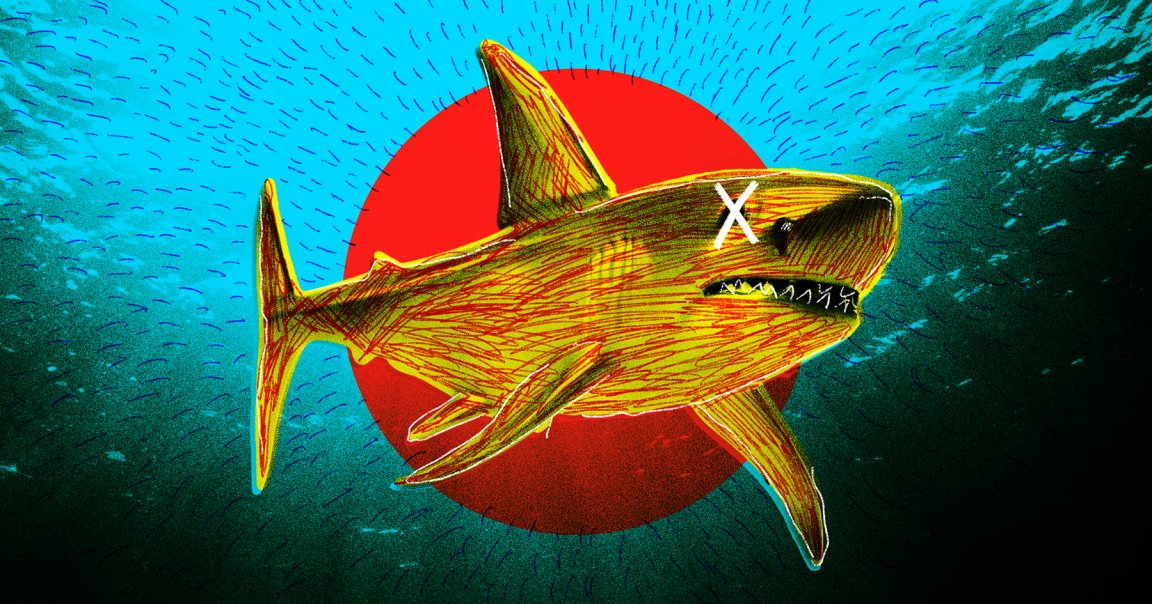
Sea-real Killer
Few creatures are more formidable than the great white shark. But the mighty apex predators are suddenly turning up dead — and scientists don’t know why.
As The New York Times reports, the Canadian Wildlife Health Cooperator (CWHC), in its three decades of existence, had never had a single dead great white turn up on its doorstep. Then, in a span of several months starting in August 2023, it had five — all found beached in eastern Canada.
Some of the deceased sharks showed no signs of injury. But as the bodies and tissue samples piled up, a pattern began to emerge: many of them had swollen, enlarged brains. Caused by what, though, is the big, blue mystery.
“Three of these five seem to have the same potentially infectious disease affecting their brain,” Megan Jones, a veterinary pathologist at CWHC, told the NYT. “We need to know more about what that is.”
Accounting for another four great white carcasses that turned up on US beaches, the grim death toll has risen to nine.
Major Headache
Necropsies revealed that most of the great white sharks were suffering from meningoencephalitis, a condition in which brain tissues become inflamed. In severe cases, the brain pushes against the skull, impacting a shark’s ability to swim.
On its own, it’s not alarming to find sharks suffering from meningoencephalitis. But according to the NYT, the cause is usually obvious, like an infection, while in the case of the beachings, no underlying cause has presented itself so far. And because some of the specimens have been recovered with full bellies, other explanations, like starvation, are also looking unlikely.
And not all of the sharks showed signs of meningoencephalitis during necropsies, despite in at least one case exhibiting the erratic behavior associated with brain swelling prior to their deaths.
“I feel very strongly that there’s something significant going on,” Alisa Newton, chief veterinarian for the shark research group OCEARCH, told the NYT.
What to Mako It?
Compared to other marine pursuits, shark science is underfunded, the NYT notes, making it difficult to track and recover sharks, especially across international boundaries. Thus, sharing samples — let alone sending full-sized shark cadavers — is a pretty tall order.
Another challenge, Newton says, is that very little is known about the death rate of sharks on the Atlantic coast in the first place.
It could also be normal for sharks to function with some degree of brain malady. “We know lots of animals that live with parasites or bacteria and they’re good, they’re fine, they always have sort of a natural load,” Tonya Wimmer, executive director of the Marine Animal Response Society, told the NYT.
If that’s the case, then it’s back to square one for the scientists. But in a promising lead, Newton said she’s submitted brain tissue samples for genetic sequencing. If there’s any nefarious little lifeforms swimming inside the shark cerebellum, that should unearth them.
But maybe there’s a cheerier explanation. All the dead sharks could actually be sign that the great whites are thriving, Wimmer suggested: with more of them around, we’d see more of their corpses, too. One can hope, at least.
More on marine life: Scientists Baffled by Orcas Wearing Dead Salmon as Hats